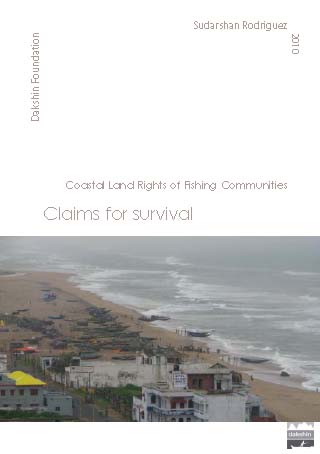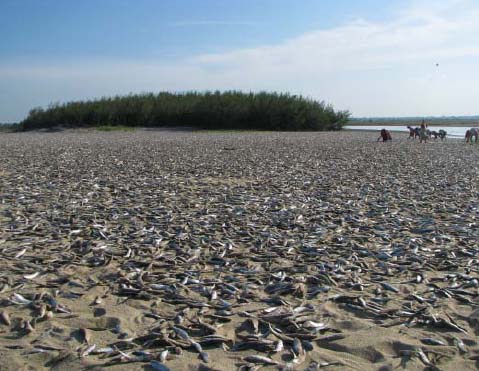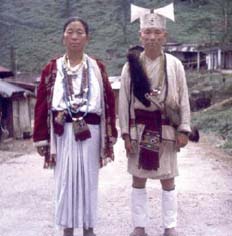/topics/common-property-resources
Common Property Resources
Claims for survival - Coastal land rights of fishing communities – A report by Dakshin Foundation
Posted on 22 May, 2011 09:25 AM Marine-coastal ecosystems and coastal communities are poorly represented in the public debates on India’s social and environmental problems. Coastal and marine ecosystems are the backbone of a fisheries economy that supports livelihoods of millions directly and several more indirectly.
Marine-coastal ecosystems and coastal communities are poorly represented in the public debates on India’s social and environmental problems. Coastal and marine ecosystems are the backbone of a fisheries economy that supports livelihoods of millions directly and several more indirectly.
Community groups such as fishers and other coastal populations enjoyed customary or traditional rights to exploit resources and to fish in adjacent coastal areas. The current state of fisheries finds its genesis in the modernization programme introduced by the Government of India to ‘develop’ the sector with the focus for development through the maximisation of production. In the late 1970s, modern fishing methods threatened the livelihoods of these communities and coastal ecosystems. Mechanised craft and gear, principally trawlers with bottom trawling gear, severely impacted fishing stocks.
Fisherfolk in India have struggled for greater control over the seas and resource management, struggles which have been directed both inward as well as against the State. The conflict over the coastal space is mostly between fishing communities and other new users and interest groups. Access to coastal resources is now being thrown open to all, giving a new meaning to the idea of ‘coastal commons’. There are very clear linkages between the rights to the coast and the right to fish as without the former, the latter will be difficult to operationalise and eventually rendered meaningless.
The Coastal Regulation Zone (CRZ) Notification, 1991 has been the only legislation with some mention and reference to customary rights of fishing communities on land in the coastal zone. However, it did not contain provisions and details to ascertain or establish these rights. Despite this, fishing communities have seen the CRZ in its 1991 form as an instrument in their favour as it regulates all activities that can potentially impact the coast and community livelihoods. However, the twenty one odd amendments to the CRZ Notification were mostly in favour of development pressures and special interest lobbies.
some mention and reference to customary rights of fishing communities on land in the coastal zone. However, it did not contain provisions and details to ascertain or establish these rights. Despite this, fishing communities have seen the CRZ in its 1991 form as an instrument in their favour as it regulates all activities that can potentially impact the coast and community livelihoods. However, the twenty one odd amendments to the CRZ Notification were mostly in favour of development pressures and special interest lobbies.
This backdrop forms the driving force behind this report which seeks to argue a case for according coastal land rights to fishing communities.
ITC Limited is looking for Programme Officer – Natural Resources Management at Mysore – Apply by 20th May, 2011
Posted on 11 May, 2011 05:38 PMContent courtesy: DevNetJobsIndia
ITC Limited is one of India’s biggest diversified corporations. Its extensive social investments programme combines effective community participation and social organisation with increasing agricultural productivity and sustainable management of natural resources. They are concentrated in remote rural areas in different parts of India. In addition to focus on natural resources management, equal emphasis is given to off-farm livelihoods.
An analysis of West Bengal Ground Water Resources (Management, Control and Regulation) Act 2005
Posted on 11 May, 2011 02:17 PMIntroduction
SPACE is looking for Programme Officer–Natural Resource Management, at Bhiwadi Dist.–Alwar, Rajasthan – Apply by 30th April 2011
Posted on 28 Apr, 2011 01:23 PMContent courtesy: DevNetJobsIndia
Society for Promotion and Conservation of Environment (SPACE), a Chandigarh based professional group having competence and expertise in natural resource management, is one of the partner organization in this project to carry out the task of impact assessment of the project activities. Under the project, SPACE is looking for a Programme Officer - NRM to handle the day-to-day impact assessment activities in the project villages.
Wagatech Pvt. Ltd. is looking for Technical cum Sales & Marketing executives
Posted on 27 Apr, 2011 01:58 PMWagatech offers creative solutions for Water and Gas industry. With its innovative leakage detection systems it facilitates conservation of vital resources like Water and Gas. Wagatech with its strategic partnership with vonRoll hydro, Switzerland shall bring in its global expertise and rich experience of managing most diverse utility networks on the planet to Indian subcontinent. Wagatech focuses on assisting municipal bodies, utility service providers as well as water distributing companies to plan, design and implement modern technologies and infrastructure, reduce transit losses in their distribution infrastructure and avoid possible damage to the public and private property due to leakages.
Role of indigenous knowledge system in conservation of forest resources – A case study of the Aka tribes of Arunachal Pradesh – A paper in the Indian Journal of Traditional Knowledge
Posted on 23 Apr, 2011 09:01 PM Indigenous knowledge is the basis for local level decision making in agriculture, healthcare, food preparation, education, natural resource management, and a host of other activities in rural communities.
Indigenous knowledge is the basis for local level decision making in agriculture, healthcare, food preparation, education, natural resource management, and a host of other activities in rural communities.
Energy from Water
Posted on 21 Apr, 2011 10:49 AM
An example technology is pico-hydro that uses local streams as a resource.
- The technology is transferred as an asset to households of farmers with access to streams, in the Western Ghats region.
- Most critically, the households decide the allocation of water between electricity generation and irrigation - they manage their demand for electricity based on water availability. The entire system retrofits into their current irrigation infrastructure.
- At the same time, there is an entire value chain of enterprises that develop the technology and deliver it to the farmer's doorstep, integrating access to MNRE subsidies and loans as necessary.
Traditional fishing techniques of tribes in Bastar region of Chhattisgarh – A paper in the Indian Journal of Traditional Knowledge
Posted on 20 Apr, 2011 07:52 AMTribal habitat and rich primitive culture covers many traditions and fish is an integral part of the tribal food habit since times immemorial in this region. The life of tribes mainly depends on naturally available foods which can rarely be reaped in other places. The fishing techniques are specialized according to structure, size of stream, season and species of fishes intended to be harvested.
Development of training module for water safety plan in urban areas - A document by ESCI
Posted on 20 Apr, 2011 03:48 AMA Water Safety Plan (WSP) is an improved risk management tool designed to ensure the delivery of safe drinking water. It identifies hazards, means to control them, means and actions to identify loss of control and its restoration. It comprises system assessment and design, operational monitoring and management plans (including documentation and communication). Water quality guidelines have been issued by the WHO.
Realisation of the fundamental right to water in rural areas: Implications of the evolving policy framework for drinking water – An article by Philippe Cullet in Economic and Political Weekly
Posted on 13 Apr, 2011 10:20 AMThe fundamental right to water in rural areas is well-established in India, but the actual content of this right has not been elaborated upon in judicial decisions. There is no general drinking water legislation that would provide this missing content.





